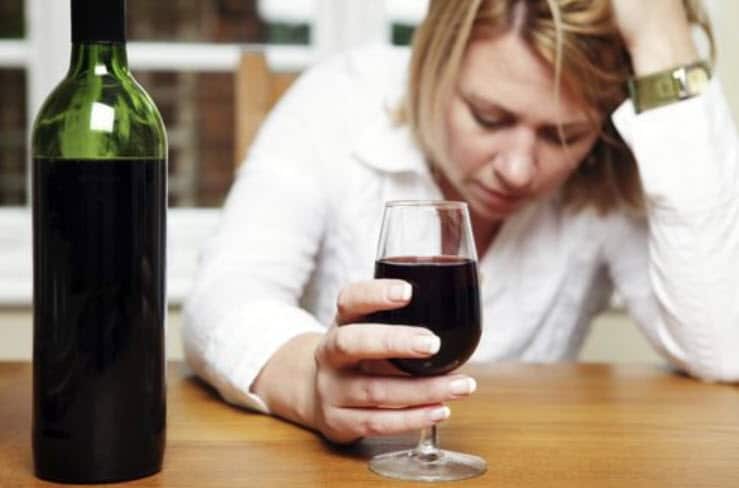
Although men are more likely to drink alcohol and drink in larger amounts, gender differences in body structure and chemistry cause women to absorb more alcohol, and take longer to break it down and remove it from their bodies (i.e., to metabolize it). In other words, upon drinking equal amounts, women have higher alcohol levels in their blood than men, and the immediate effects of alcohol occur more quickly and last longer in women than men. These differences also make it more likely that drinking will cause long-term health problems in women than men.
Drinking Levels among Women
- Approximately 46% of adult women report drinking alcohol in the last 30 days.
- Approximately 12% of adult women report binge drinking 3 times a month, averaging 5 drinks per binge.
- Most (90%) people who binge drink are not alcoholics or alcohol dependent.
- About 2.5% of women and 4.5% of men met the diagnostic criteria for alcohol dependence in the past year.
Reproductive Health Outcomes
- National surveys show that about 1 in 2 women of child-bearing age (i.e., aged 18–44 years) drink alcohol, and 18% of women who drink alcohol in this age group binge drink.
- Excessive drinkingmay disrupt the menstrual cycle and increase the risk of infertility.
- Women who binge drinkare more likely to have unprotected sex and multiple sex partners. These activities increase the risks of unintended pregnancy and sexually transmitted diseases.
Pregnancy Outcomes
- About 10% of pregnant women drink alcohol.
- Women who drink alcohol while pregnant increase their risk of having a baby with Fetal Alcohol Spectrum Disorders (FASD). The most severe form is Fetal Alcohol Syndrome (FAS), which causes mental retardation and birth defects.
- FASDare completely preventable if a woman does not drink while pregnant or while she may become pregnant. It is not safe to drink at any time during pregnancy.
- Excessive drinking increases a woman’s risk of miscarriage, stillbirth, and premature delivery.
- Women who drink alcohol while pregnant are also more likely to have a baby die from Sudden Infant Death Syndrome (SIDS). This risk substantially increases if a woman binge drinksduring her first trimester of pregnancy.
Other Health Concerns
- Liver Disease: The risk of cirrhosis and other alcohol-related liver diseases is higher for women than for men.
- Impact on the Brain: Excessive drinking may result in memory loss and shrinkage of the brain. Research suggests that women are more vulnerable than men to the brain damaging effects of excessive alcohol use, and the damage tends to appear with shorter periods of excessive drinking for women than for men.
- Impact on the Heart: Studies have shown that women who drink excessively are at increased risk for damage to the heart muscle than men even for women drinking at lower levels.
- Cancer: Alcohol consumption increases the risk of cancer of the mouth, throat, esophagus, liver, colon, and breast among women. The risk of breast cancer increases as alcohol use increases.
- Sexual Assault: Binge drinking is a risk factor for sexual assault, especially among young women in college settings. Each year, about 1 in 20 college women are sexually assaulted. Research suggests that there is an increase in the risk of rape or sexual assault when both the attacker and victim have used alcohol prior to the attack.
The Council on Recovery offers prevention, education, treatment, and recovery services for women experiencing alcoholism, drug addiction, and co-occurring mental health disorders. Contact The Council today to get help.
